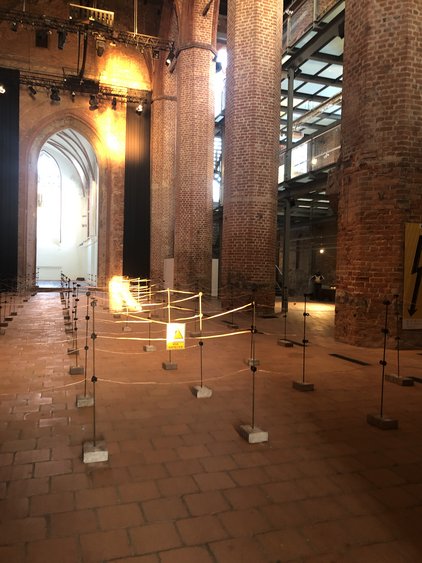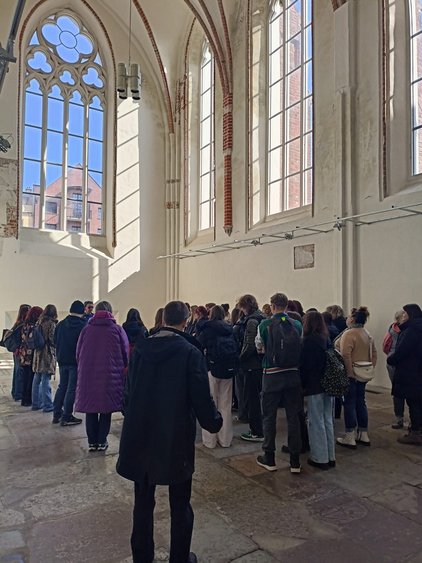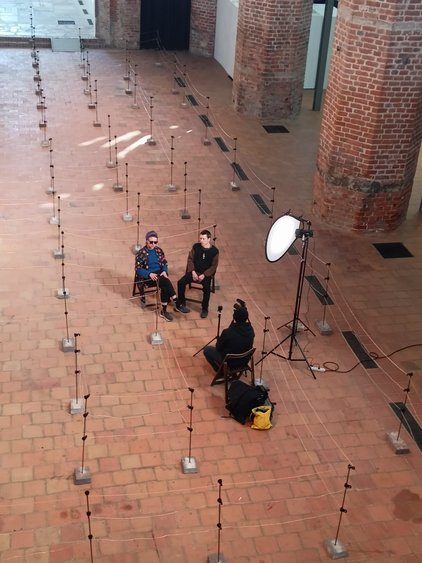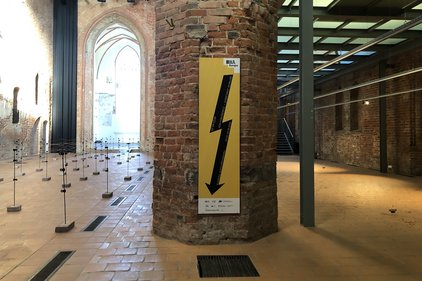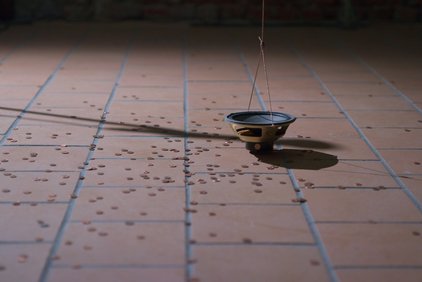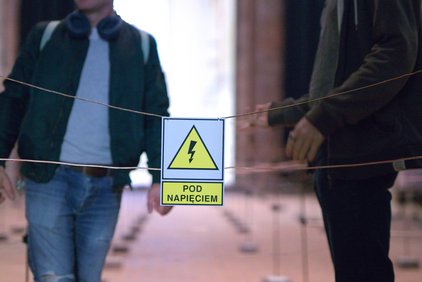SZ ON SZUM refers to very important human concepts: safety and freedom.
The old biblical expression „become like buzzing copper” refers to become empty, without feelings, without an „inside”, deaf to the surrounding world and to another human being. The labyrinth, in turn, as non-space, in-between space or “without inside”, turns into a path of search for “inside” and love for the audience that wanders in its space. The use of copper wires in the construction of the labyrinth allows us, literally and metaphorically, to exploit the properties of copper, as the best conductor of electricity and heat among the metals (except silver), as well as its antibacterial and purifying qualities. As an electrical conductor, if electricity runs through it, copper becomes a dangerous, life-threatening material, that, again, turns similar to a labyrinth, made up of interwoven and interpersonal relations of paths that are mostly blind, uncertain, dead ends or even dangerous. The labyrinth is one of the most universal symbols of human - spatial and social - existence. Copper, when it „buzzes”, on the one hand clears the space, on the other, however, it helps to break out of the labyrinth, to find the way in which man „fills up”, becomes enlightened, becomes free. This polarity of the copper as well as the labyrinth, which name itself means bilateral, ambiguous, contradictory, captures the essence of life on the border between human precious values. It is a dilemma of choosing between safety and freedom. A dilemma between locking oneself in one’s warm and safe nest, and being open and transparent. Despite the dangers that openness can bring, it constitutes a space for our freedom.
